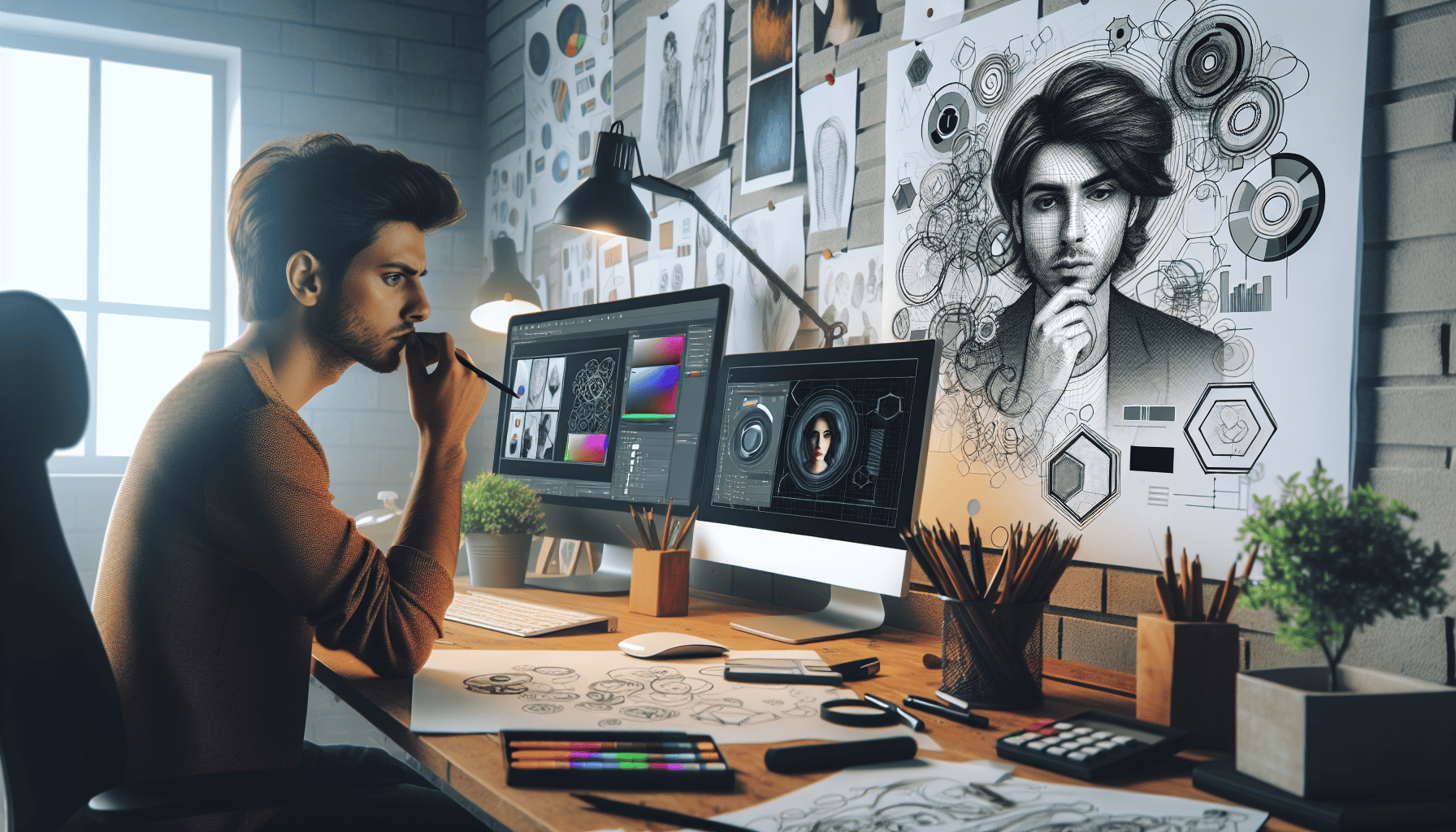In recent years, the world of graphic design has continuously evolved, driven by technological innovations and changing consumer behaviors. The visual landscape today is a tapestry of diverse styles, techniques, and philosophies that push the boundaries of creativity. Let’s delve into some of the most compelling design trends currently shaping the industry.
Minimalism with a Twist
Minimalism remains a powerful design pillar, but it's being reimagined with playful and unexpected elements. Designers are now incorporating bold colors and interactive elements within minimalist frameworks, resulting in clean yet intriguing visuals. The balance of simplicity and surprise invites audiences to engage more intimately with the content.
Vibrant Color Schemes
Color is taking center stage in graphic design, with an emphasis on vibrant and dynamic palettes. Designers are experimenting with unconventional color combinations and gradients, using them to create energetic and attention-grabbing visuals. This approach not only captivates viewers but also helps brands stand out in a crowded digital space.
Retro and Nostalgia
A longing for the past is evident in the resurgence of retro and nostalgic design elements. From the 70s psychedelic patterns to the pixelated style of early digital media, these elements evoke a sense of familiarity and comfort. This trend caters to audiences seeking an emotional connection through visuals that remind them of simpler times.
3D Design and Realism
The use of three-dimensional elements has become increasingly refined, integrating seamlessly into both digital and print media. Advanced software tools allow designers to craft realistic textures, lighting, and depth, creating immersive experiences that captivate viewers. The rise of augmented reality and virtual reality applications also fuels this trend, driving demand for hyper-realistic visuals.
Custom Typography
Typography is experiencing its own renaissance, with bespoke typefaces becoming a vehicle for brand expression. Custom fonts allow brands to convey their unique personality, whether it's through whimsical curves, bold strokes, or intricate detailing. The emphasis on typography as a primary design element highlights its crucial role in storytelling and communication.
Nature-Inspired Designs
As society becomes more eco-conscious, design is reflecting this shift by incorporating nature-inspired elements. Earthy tones, organic shapes, and illustrations of flora and fauna are prevalent. This trend not only satisfies aesthetic preferences but also aligns with broader themes of sustainability and environmental awareness.
Fluid and Organic Shapes
Moving away from rigid grid systems, many designers are embracing fluid and organic forms that convey movement and flexibility. These shapes add a dynamic energy to designs, making them more relatable and human. They often appear in backgrounds or as focal points, adding depth and interest to otherwise flat compositions.
Inclusivity in Visual Representation
The push for diversity and inclusiveness is influencing how we create and consume visual content. Designers are making conscious efforts to showcase a broad spectrum of cultures, identities, and experiences. This trend not only reflects societal changes but also improves brand relatability, ensuring that all audiences feel seen and represented.
Asymmetrical Layouts
Breaking away from traditional, symmetrical compositions, asymmetry allows for bolder and more innovative arrangements. This approach can create a sense of intrigue and movement, as it challenges the conventional flow and draws the viewer's eye across the entire design. Asymmetrical layouts often bring out the character and energy of a brand or project in unique ways.
In conclusion, the realm of graphic design is a dynamic playground where tradition and innovation intersect. The current trends showcase a blend of daring creativity and mindful inclusivity, reinforcing the medium’s power to influence, inspire, and engage audiences worldwide. As we look to the future, these trends will undoubtedly continue to evolve, reflecting both technological advancements and the ever-changing tapestry of global culture.
